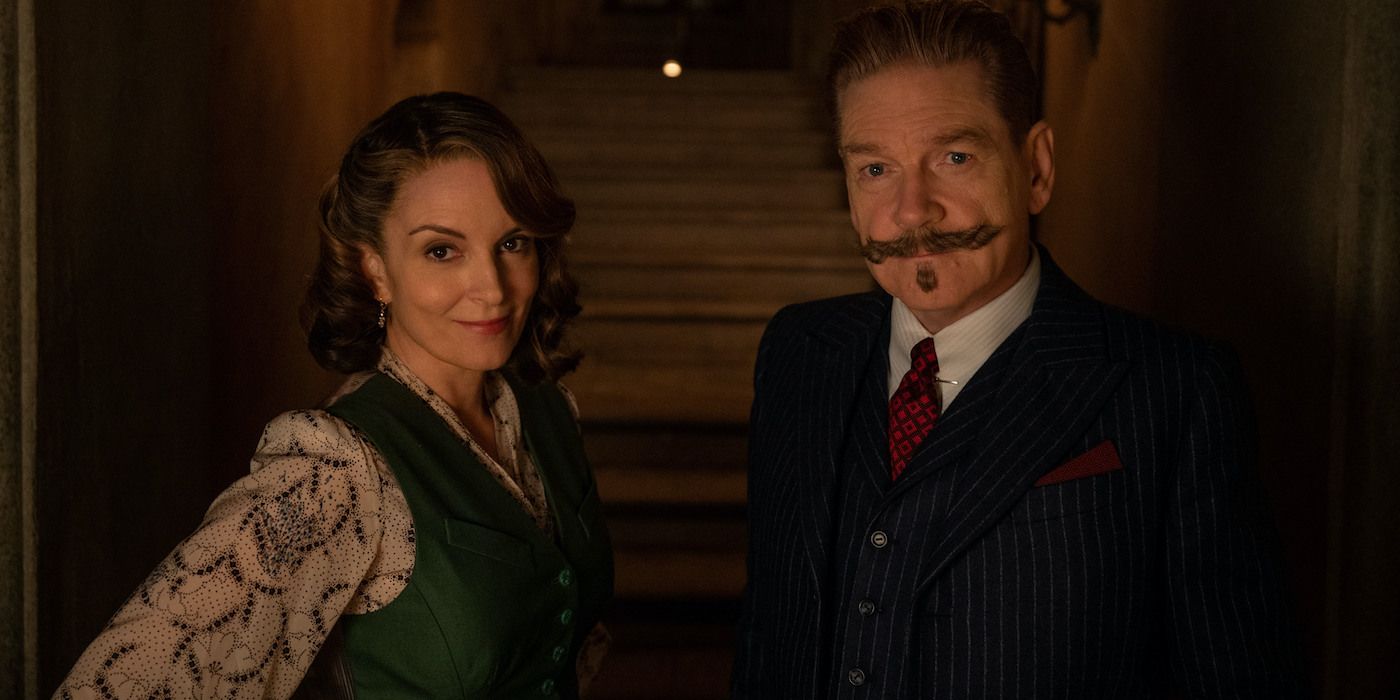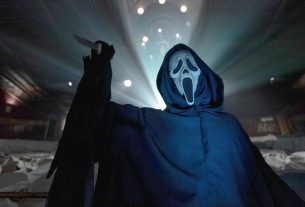Editor’s Note: The following contains spoilers for A Haunting in Venice.
The Big Picture
- In A Haunting in Venice, Poirot’s skepticism towards spirituality and religion is portrayed clumsily, with ham-fisted dialogue and forced character development.
- The film introduces the potential for deeper theological implications but fails to explore them fully, instead focusing on a conventional haunted house murder mystery.
- The inclusion of darker, real-world elements such as concentration camps feels disconnected from the overall tone of the film, making the portrayal of Poirot’s struggles with God feel awkward and ineffective.
A Haunting in Venice, the third Kenneth Branagh-directed adaptation of one of Agatha Christie‘s Hercule Poirot novels, features the iconic detective (Branagh) once again in a funk. Across all three of these movies, Poirot has to be dragged into sleuthing, as he’s typically on vacation or in outright retirement. This time, Poirot is finding himself deeply distrustful of the world because of spiritual concerns. The idea of going to a séance overseen by that famous speaker to the dead Joyce Reynolds (Michelle Yeoh) fills him with cynicism and frustration. He even tells his dear friend Ariadne Oliver (Tina Fey) that, after all the turmoil and rational explanations for the inexplicable that he’s been privy to, he’s come to a deep conclusion about the world. “There is no God,” Poirot remarks before claiming firmly that there are also no spirits, ghosts, or other beings pointing to an afterlife.
This sets in motion Poirot’s primary character arc in A Haunting in Venice, as he grapples with a murder mystery set inside a massive estate that may or may not involve the ghosts of dead kids. As Poirot keeps having potential encounters with unexplainable paranormal phenomena, this man’s idea of what is or isn’t real becomes challenged. In the hands of Michael Green’s screenplay, it’s a character arc that ends up feeling clumsy and underwritten. Despite initially posing some weighty questions and concepts, A Haunting in Venice doesn’t turn out to be very interested in probing its deeper theological implications.
Why Does ‘A Haunting in Venice’ Have Poirot Grappling With God?
It makes sense that, after experiencing so many mysteries, Hercule Poirot would be dubious of anything related to spirituality or phenomena that he can’t see. He’s a man of logic, after all, whose whole job requires him to survey seemingly inexplicable scenarios and deduce the logical machinations informing them. Still, it feels a bit abrupt for Hercule Poirot to be so fiercely anti-God and wear it like a badge of honor in A Haunting in Venice. Mostly, this is because Green’s script fails to make it feel like an organic extension of this detective’s personality. The ham-fisted dialogue to emphasize this new side of Poirot just makes the character sound like a Kevin Sorbo villain in a Pure Flix movie.
After introducing this potentially weighty element, A Haunting in Venice largely steps back from the sudden presence of Poirot’s religious feelings. His dubiousness over the afterlife or existential matters remains, but it’s now rooted in the agnostic realm of just “ghosts” or “spirits” rather than a specific deity. If A Haunting in Venice really wanted to make the feature about Poirot reclaiming his faith, commit to the bit! There’s nothing worse than half-hearted execution in cinema. If you want to be the Facing the Giants of Agatha Christie adaptations, commit to being the best and most unhinged version of that concept as possible! Don’t chicken out afterward and just have Poirot suddenly forget that he was cursing the very existence of God before the bodies start hitting the floor.
Religious matters are also briefly touched upon with the presence of the supporting character Olga Seminoff (Camille Cottin), the servant of Rowena Drake (Kelly Reilly). Her staunch religious convictions make her initially furiously opposed to the presence of Joyce Reynolds since Seminoff believes this means that she and her companions will be dabbling in matters that mortal folks shouldn’t be engaging in. Her religious proclivities come up a bit more in the wake of the murders than Poirot’s initial hatred of God, but they also tend to fade into the background. Green’s script and Branagh’s direction become far more interested in just making a conventional haunted house murder mystery once the film reaches the half-hour point, which is totally fine conceptually. However, the awkward introduction of religious topics and then abandoning these matters speaks to a larger problem of commitment with this particular Hercule Poirot adventure.
‘A Haunting in Venice’ Doesn’t Commit to Its Heavy Material
Midway through A Haunting in Venice, Poirot’s inevitable confrontation with murder suspect Dr. Leslie Ferrier (Jamie Dornan) leads this detective to discover why this doctor is so shell-shocked. Why is this man so overcome with anguish and existing in the shadow of his past? Turns out, Ferrier was on the battle lines of World War II and discovered a concentration camp shortly after the global conflict came to an end. The sights he saw there and his men’s inadvertent killing of the captives there have caused him unspeakable torment. Now he is always haunted by these ghosts of the past. It’s not a bad backstory for this character and Dornan plays Ferrier revealing this deeply personal part of his psyche well. However, it also feels disconnected from the rest of A Haunting in Venice. Suddenly involving concentration camps feels out of place in a movie that otherwise is aiming for all the weighty horror of your average Insidious installment.
This erratic approach to the tone of A Haunting in Venice, which keeps punctuating a frivolous horror story with darker matters grounded in reality, speaks to why the film’s approach to religion just doesn’t work. Poirot’s struggles with God are only referenced in clumsy expository dialogue, he has to insist to the audience he hates and doesn’t believe in an almighty creator because his actions don’t communicate this idea. It’s all incredibly awkward, not helped by the fact that A Haunting in Venice is a mainstream PG-13 horror film released by Disney. This isn’t a type of cinema that’s going to be able to communicate the nuances of a crisis of faith or even lend an empathetic ear to atheism. Instead, in the interest of not rocking the religious status quo in the Western world, it can only briefly question God before firmly coming back on the side of the spiritual.
Yes, A Haunting in Venice ends with a very concrete declaration that all matters related to the afterlife are real. The sudden presence of a ghost in Poirot’s confrontation with the film’s eventual killer isn’t enough to convey this, though, so this detective must have a lengthy chat with youngster Leopold Ferrier (Jude Hill), who can communicate with the dead. This conversation, though well-acted, makes it no ambiguous matter whether ghosts exist or not in this universe. After mostly side-stepping Poirot’s spiritual uncertainty, A Haunting in Venice concludes by giving its protagonist and the audience a pat on the head while murmuring “Of course these things exist.” It’s an abrupt finish to an awkward plotline reflecting a movie that struggles with committing to its weightier impulses.





